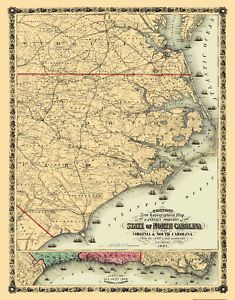 Southern Baptist army missionary efforts continue to grow. Today’s North Carolina Baptist Biblical Recorder prints the testimony of a pastor who had earlier doubted the positive effects of Army Colportage (literature distribution), but who now praises all three elements of Baptist army mission efforts: chaplains, missionaries and colporteurs.
Southern Baptist army missionary efforts continue to grow. Today’s North Carolina Baptist Biblical Recorder prints the testimony of a pastor who had earlier doubted the positive effects of Army Colportage (literature distribution), but who now praises all three elements of Baptist army mission efforts: chaplains, missionaries and colporteurs.
In the same newspaper, a letter from Army Colporter John Ammons describes a “convalescent camp” near Mars Hill College.
A convalescent camp is established at this place, to which soldiers are being sent from every part of the South-west. There were about 2300 in this camp when I first reached here, but before I left there were 4,000.
Brother Hufham if a man could visit this camp and not be deeply affected at the condition of these poor fellows, I should regard him past feeling.
The number of deaths in this camp range from ten to eighteen daily. I passed the cemetery alloted to the soldiers and stopping to make some observations, I found lying side by side the North Carolian, Georgian, Mississippian, Kentuckian and Tennesseean. Peace to their ashes! But, stop! did they die as Christians? True their earthly warfare is ended, but where are their souls? Do they rest in “Abraham’s bosom,” or have they lain down with “everlasting burnings?” These were some of my reflections. O how solemn I felt as I gazed over that sacred place and wondered if christians had done their duty toward those who rested within its precincts. I felt more than ever impressed with the importance of my mission–the work of teaching men to love Jesus.
Teaching soldiers, whose job is to kill their former fellow-countrymen (and even their Baptist brothers in Christ), to love Jesus is a task that few Baptist ministers could have foreseen just a few short years ago. And yet now, for both South and North, the Almighty is a God of hate and love, of hell on earth, and of heaven amid the ashes.
Sources: “Proceedings of the Baptist State Convention of North Carolina” (link), and “Convalescent Camp,” John Ammons, Biblical Recorder, November 12, 1862 (link)


